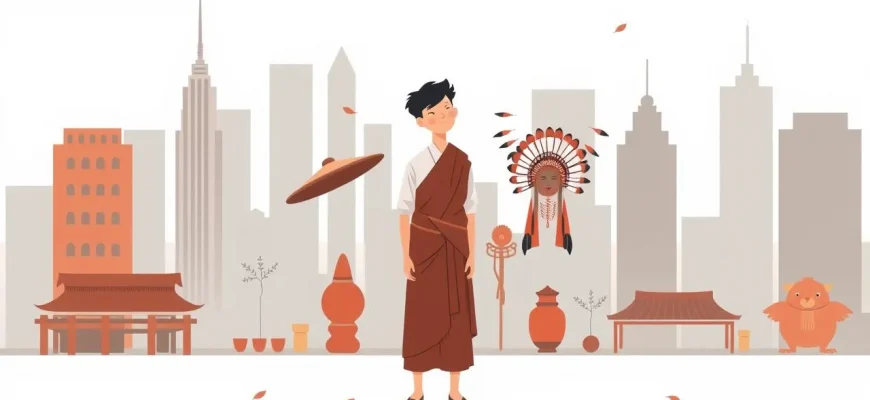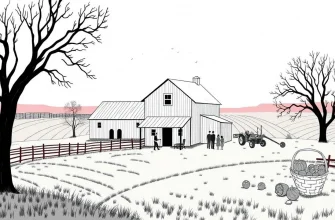Delving into the heart of cultural identity, this collection of drama films showcases the beauty and complexity of national traditions. Each film offers a unique perspective on how customs, rituals, and heritage shape individuals and communities, providing viewers with a deeper understanding of diverse cultures and the universal themes that bind us all.

The Joy Luck Club (1993)
Description: This film examines the lives of four Chinese-American immigrant families, highlighting the cultural traditions and generational conflicts.
Fact: The film was adapted from Amy Tan's bestselling novel, which itself was inspired by her own family stories.
 Watch Now
Watch Now 
The Scent of Green Papaya (1993)
Description: This Vietnamese film captures the essence of traditional Vietnamese life through the eyes of a young servant girl, highlighting the beauty of simplicity and tradition.
Fact: It was the first Vietnamese film to be nominated for an Academy Award for Best Foreign Language Film.
 Watch Now
Watch Now 
Whale Rider (2002)
Description: Set in New Zealand, this film tells the story of a young Maori girl who challenges the patriarchal traditions of her tribe to become a leader.
Fact: The film was shot in the small coastal town of Whangara, where the story is set, providing an authentic backdrop.
 Watch Now
Watch Now 
The Last Samurai (2003)
Description: This epic drama explores the clash between Western modernization and the samurai tradition in 19th-century Japan.
Fact: The film's production involved extensive training for actors in samurai sword fighting to ensure authenticity in the battle scenes.
 Watch Now
Watch Now 
The Kite Runner (2007)
Description: This film, based on Khaled Hosseini's novel, explores the deep-seated traditions of Afghanistan, focusing on friendship, betrayal, and redemption against the backdrop of political turmoil.
Fact: The film was shot in both China and Kabul, Afghanistan, to authentically capture the essence of the story's setting.
 Watch Now
Watch Now 
The Namesake (2006)
Description: This film follows the life of an Indian-American family, exploring the struggle between preserving cultural identity and assimilating into American society.
Fact: Mira Nair, the director, also directed "Monsoon Wedding," showcasing her expertise in depicting Indian culture.
 Watch Now
Watch Now 
The Secret of Kells (2009)
Description: Although an animated film, it beautifully portrays the creation of the Book of Kells, reflecting Ireland's rich monastic tradition and Celtic art.
Fact: The film was nominated for an Academy Award for Best Animated Feature, showcasing its artistic merit.
 Watch Now
Watch Now 
The Lunchbox (2013)
Description: This heartwarming story revolves around Mumbai's famous dabbawala system, showcasing the nuances of Indian food culture and the emotional connections it fosters.
Fact: The film was India's official entry for the Best Foreign Language Film at the 86th Academy Awards.
 Watch Now
Watch Now 
Eat Drink Man Woman (1994)
Description: A Taiwanese film that explores family dynamics through the lens of traditional Chinese cuisine, reflecting on the changing roles of women and family traditions.
Fact: Director Ang Lee's first major success, this film paved the way for his later acclaimed works like "Crouching Tiger, Hidden Dragon."
 30 Days Free
30 Days Free 
Monsoon Wedding (2001)
Description: A vibrant portrayal of an Indian Punjabi wedding, this film delves into the traditions, family dynamics, and the clash between modernity and tradition.
Fact: The film won the Golden Lion at the Venice Film Festival, highlighting its global appeal and cultural significance.
 30 Days Free
30 Days Free 








